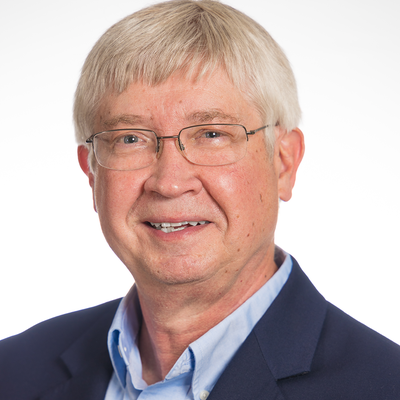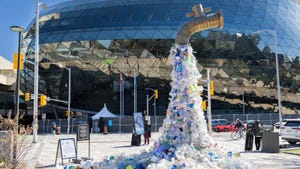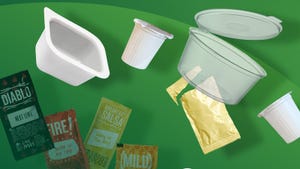McDonald’s Plastic Cups Use Advanced Recycling, Bioplastics
Hybrid polypropylene cup in test would help move the restaurant chain beyond virgin petrochemical-based plastics to sustainably renewable sources.
McDonald’s is testing a new type of clear drinking cup that’s a move away from fossil fuel petrochemical sources to a circular economy model. The cups will comprise an equivalent of 50% post-consumer recycle (PCR) content and 50% biopolymer resins. The latter includes collecting and reusing the restaurant chain’s own cooking oil to create a closed-loop circular system. The chain refers to the dual blend as a “power couple” of sustainability.
McDonald’s is using a mass balance method to measure and track recycled and biobased inputs being used in a process that also mixes traditional fossil-fuel sources.
The project was led by HAVI, which engaged the expertise of a team of industry expertise from Pactiv Evergreen, Neste, INEOS, and LyondellBasell.
“Each partner provided a piece of the puzzle that made this test possible,” the company said in a statement.
Available in 28 of the chain's restaurants in Savannah, GA, the sustainable cups are recyclable after use. According to the McDonald’s release, Savannah patrons “just rinse and recycle the cup after use at home or in any recycling bin.”
Barely discernible difference.
“McDonald’s regular cups are made from virgin polypropylene (PP),” Richard Longden, group communications manager, INEOS, informs us. “These new circular clear PP cups are intended to be nearly identical to the McDonald’s cups customers have been using.”
According to McDonald’s, consumers “probably won’t notice any difference between the two, but behind the scenes, there’s plenty to get excited about.”
The buzz starts with the cups' advanced recycling content.
“Advanced recycling converts waste plastic back into its raw materials for use again in next generation plastic production,” Longden explains. “The INEOS process is certified by ISCC Plus through its mass-balance attribution method. The mass-balance methodology allows certified entities to measure and track recycled inputs that are combined with traditional fossil-fuel sources.”
ISCC Plus is an independent multi-stakeholder organization providing a globally applicable certification system for the sustainability of raw materials and products.
“This certification of INEOS’s plants validates ISCC Plus objectives are met and enables the development and offering of a wide range of olefin and polymer products derived from recycled waste plastics,” Longden points out.
Mike Nagle, CEO INEOS Olefins & Polymers USA, says “we believe the future of packaging materials needs to become more circular wherever possible. Working together with our customers, we can help them to meet their pledges and commitments in this area. To take plastic waste back to virgin plastic is the ultimate definition of recycling and will create a truly circular approach.”
About the Author(s)
You May Also Like




